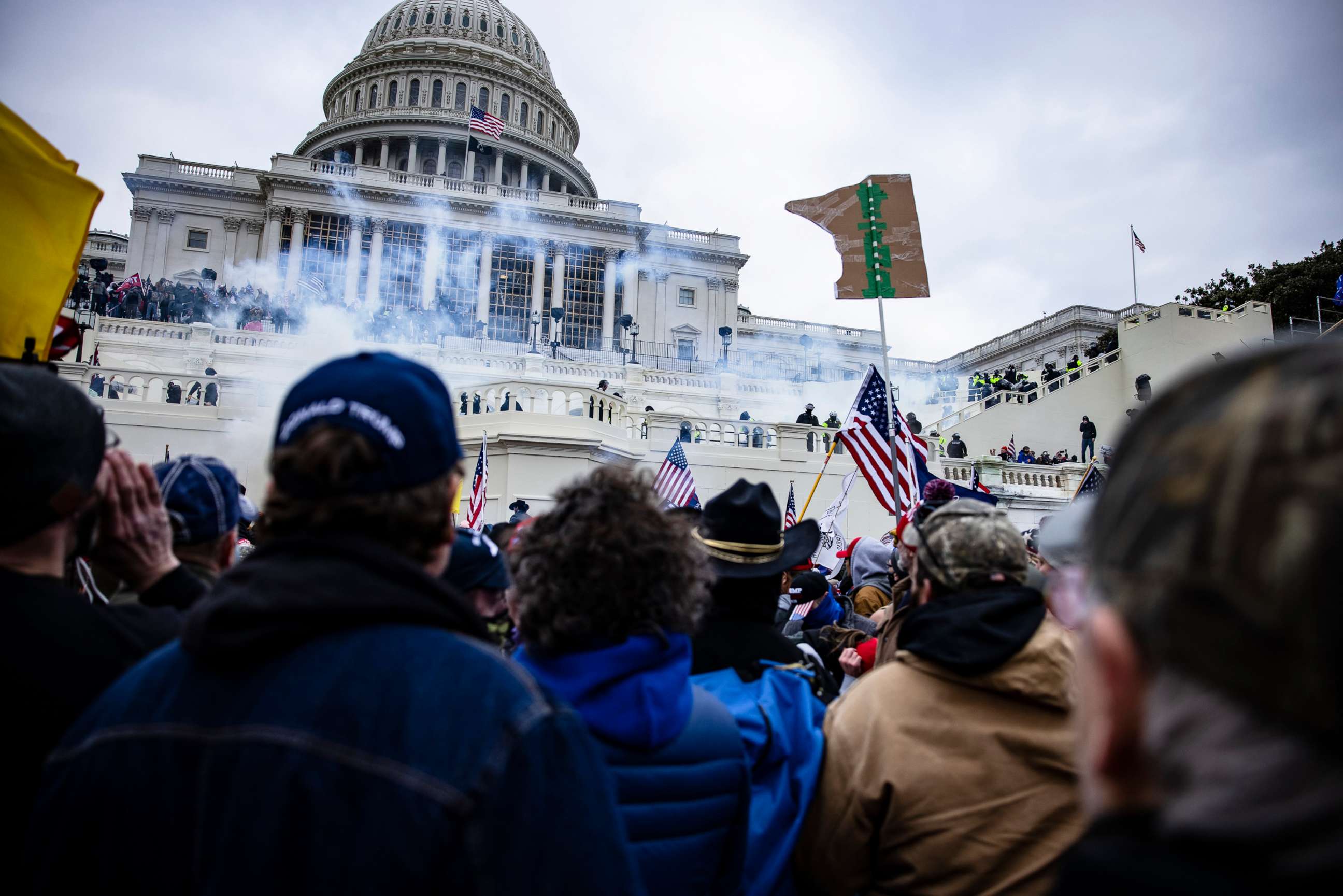Judge rejects Trump's effort to dismiss Jan. 6 civil lawsuits, finds they could establish 'plausible conspiracy'
The suits seek to hold Trump liable for the Jan. 6 attack on the U.S. Capitol.
A federal judge has rejected an effort by former President Donald Trump to dismiss a series of lawsuits brought against him by Democratic lawmakers and U.S. Capitol Police officers seeking to hold him liable for the Jan. 6 attack on the U.S. Capitol.
The ruling, by D.C. district judge Amit Mehta, finds that the allegations in the suits, if true, could "establish a plausible conspiracy involving President Trump" and those who carried out the Jan. 6 attack.
"Viewing the foregoing well-pleaded facts in the light most favorable to Plaintiffs, and drawing all reasonable inferences in their favor," wrote Mehta, "the court concludes that the Complaints establish a plausible conspiracy involving President Trump" -- and based on that, the judge denied Trump's motion to dismiss the cases.
The 112-page ruling allows part of three separate civil lawsuits brought by 11 lawmakers -- including Rep. Bennie Thompson, Rep. Eric Swalwell and two Capitol Police officers -- to move forward against Trump.
Mehta, in the ruling, removed Trump's son Donald Trump Jr. and Trump's lawyer, Rudy Giuliani, as defendants in the lawsuit.
Mehta additionally rejected an effort by the Oath Keepers and by Proud Boys leader Enrique Tarrio to remove themselves as defendants in the lawsuits.
Separately, Mehta said he will remove Rep. Mo Brooks as a defendant in the lawsuit brought by Rep. Swalwell once Brooks files an official motion to dismiss.
According to Mehta, the allegations in the lawsuits, if true, could "establish a plausible conspiracy involving President Trump" and those who carried out the attack on the Capitol, including the Proud Boys and Oath Keepers militia.

"Recall, a civil conspiracy need not involve an express agreement; so, the fact that President Trump is not alleged to have ever met, let alone sat down with, a Proud Boy or an Oath Keeper to hatch a plan is not dispositive. A tacit agreement -- one that is 'implied or indicated ... but not actually expressed' -- is enough," Mehta wrote. "The key is that the conspirators share the same general conspiratorial objective, or a single plan the essential nature and general scope of which is known to all conspirators."
Mehta said it's also plausible Trump knew there were militia and other far-right groups descending on Washington that planned to commit acts of violence to keep him in power, given how he and other top officials aggressively monitored news coverage and through his own public comments about the Proud Boys, telling them to at a prior presidential debate to "stand back and stand by."
Mehta also included in his analysis whether Trump's speech on the Ellipse prior to the Jan. 6 attack could amount to incitement under the legal definition. According to Mehta, Trump's encouragement to his supporters to "fight like hell" are "plausibly words of incitement not protected by the First Amendment."
Representatives for Trump did not immediately respond to a request for comment form ABC News.
"Today is a major victory for the rule of law, and demonstrates just how important the courts are for ensuring accountability," said Joseph Sellers, partner at Cohen Milstein Sellers & Toll and co-lead counsel for the members of Congress who brought the case. "We will continue to pursue justice through the courts and ensure accountability for this attack on our democracy."
The ruling, which Trump's legal team is likely to appeal, would have sweeping implications on claims of presidential immunity from civil lawsuits -- which Mehta acknowledged in the ruling.
"To deny a President immunity from civil damages is no small step," Mehta wrote. "The court well understands the gravity of its decision. But the alleged facts of this case are without precedent, and the court believes that its decision is consistent with the purposes behind such immunity."



